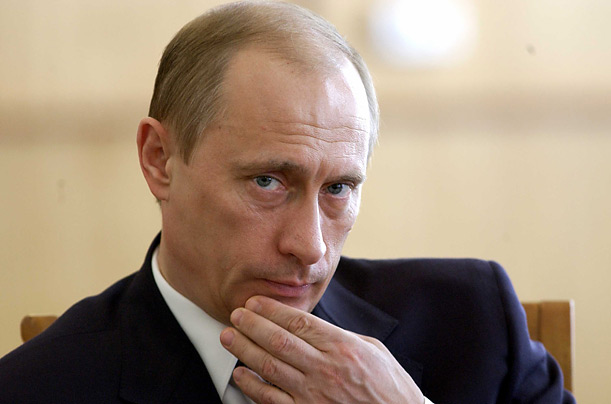
From Janusz Bugajski, Christian Science Monitor: Among the top priorities that Russian President Vladimir Putin set for his third presidential term is the reintegration of former Soviet republics – based on tighter economic links and culminating in a political and security pact centered around Russia. Moscow seeks to create a new Eurasian Union that will balance the European Union in the West and China in the East.
Economic linkages will supposedly create closer political and security ties, thus making it less likely that Russia’s neighbors can join alternative military and political alliances. This approach is mirrored by a more assertive policy toward vulnerable former satellite states in Central Asia and Central-Eastern Europe. The purpose is to undercut their opposition to Russia’s regional ambitions. Russian meddling in their domestic politics provides a valuable avenue of influence. . . .
Elections in the Baltic states provide a valuable avenue for the Kremlin to undermine political parties that oppose its regional ambitions.
Lithuania holds parliamentary elections on Oct. 14 and 28. The center-right government is challenged by the Labor Party, which ethnic Russian minority voters are likely to support. Reports have surfaced of Russian operatives bribing politicians and stirring inter-ethnic relations. Lucrative business contracts, donations to political campaigns, and the purchase of media outlets enable Moscow to exert political influence and convince politicians to favor Russia’s strategic interests.
Several previous cases point to Russian political subversion in Lithuania. For instance, Russian businessmen with ties to the Kremlin have purchased influence there. This policy culminated in the impeachment of President Rolandas Paksas in April 2004 on charges of leaking classified information to a Russian businessman believed to be linked with Moscow’s secret services.
In Latvia’s September 2011 elections, the Kremlin supported the ethnic-Russian Harmony Party, calculating that by entering government it could sway Latvia’s policies in a pro-Moscow direction. Harmony was left out of the governing coalition because of fears that it could veer Latvia away from its Western orbit.
Despite such setbacks, every election cycle provides Moscow with fresh opportunities to pursue its regional ambitions. For the sake of maintaining national independence and promoting democracy in these countries, let us hope they are able to resist these ambitions.
Janusz Bugajski is a senior associate of the Europe Program at the Center for Strategic and International Studies in Washington and the author of 18 books on Europe, Russia, and transatlantic relations. (photo: TIME)
Image: time%2010%201%2012%20vladimir_putin_01.jpg
